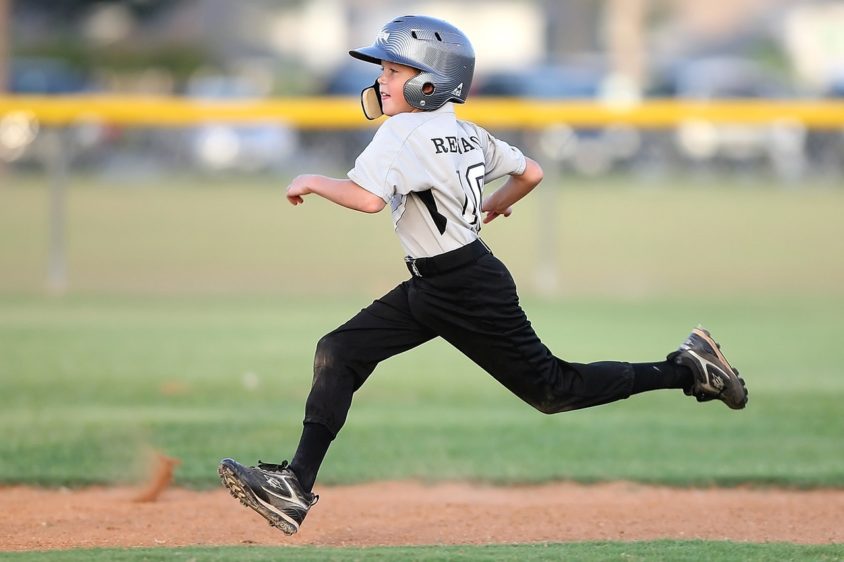Each year, seven million young athletes will become injured while playing their favorite sports. In fact, the National Youth Sports Safety Foundation estimates about three million kids have their teeth knocked out in sporting events annually. While these statistics sound frightening, the right athletic gear can help keep your child safe on the field or court.
Protecting the teeth of young athletes is of the utmost importance. Fail to prevent injuries and your child may experience eating problems, crooked teeth, and future costly dental work. Thankfully, a mouth guard, helmet, and pads can provide significant protection against such issues.
The Importance of Mouth Guards
The humble mouth guard is one of the most powerful protections young athletes have against oral injuries. Professional athletes use pressure laminated guards that are custom-fitted for their mouths. For most youth athletes, though, stock mouth guards will suffice. They come in small, medium, and large sizes and can be boiled and then bitten down upon for a tight fit.
Properly fitted mouth guards can prevent cuts and bruising during impact between the lips and the teeth. They can prevent tooth fractures and displacement. Believe it or not, a mouth guard can also protect against brain injuries. They act as shock absorbers between the upper and lower jaws, reducing the impact a blow to the head might normally have. Mouth guards can also bolster an athlete’s confidence that they’ll be able to perform without risking serious injuries.
Repairing Teeth After an Injury
Should a dental injury occur on the sport’s field, it’s important to take your child to a dentist as soon as possible. This is especially true when teeth have been knocked out – the faster your child sees a dentist, the more likely it is that the tooth can be saved. Rinse any debris from the tooth and hold it in the socket on the way to the dentist. If the tooth can’t be held in place, try dropping it into a glass of milk. While it sounds odd, milk contains sugars, proteins, and antibacterial agents necessary for teeth to stay “alive.”
Acting quickly is key. While most young athletes will never have to deal with this specific issue, knowing how to respond in an emergency can make all the difference for your smile!

